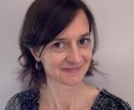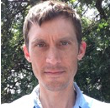FALL QUARTER 2021
'Slow Listening: The Art and Science of Performative Speech', Prof. Marit MacArthur and Prof. Lee Miller
“to paraphrase [James] Baldwin, [one is] always hearing one’s voice through the ears of others.” – Nina Eidsheim
How do we listen? How do our voices sound to others? How do we decide how we want our voices to sound, if we do this consciously at all? What vocal qualities and neurobiological processes underlie our strong, impressionistic responses to different voices we love, and sometimes love to hate—in movies, podcasts, stand-up comedy, plays, political speeches, poetry readings, etc.? How do we filter a voice through our personal history of listening?
This 2-unit First-Year Seminar will 1) provide basic background in audio signal processing, the neuroscience of speech perception, and voice studies theory—including questions of implicit bias around perceived identity and auditory stereotyping; 2) train students on open-source, state-of-the-art, user-friendly tools for sound analysis and visualization; and 3) guide students in analyzing their choice of recordings of performative speech, and thus sharpen their skills and sensitivity as listeners, and as potential practitioners of performative speech.

Associated Artist- Eliza Jane Schneider, "Freedom of Speech"
Eliza Jane Schneider is a voice actor and dialect coach whose work has been featured on South Park, King of the Hill and numerous other animated shows and movies.
She has taught and recorded dialects from all 50 states and around the English-speaking world. After having her wrist broken by a cop while protesting the first Gulf war, Schneider quit her “dream” job on television and set off across the country in search of … something she could not define. Almost 10 years and thousands of interviews later, she invites us on her journey in Freedom of Speech. The piece sets up a dialogue between the disconnected: urban and rural; rich and poor; New York and the South, all while taking the audience on Schneider’s wild ride from Arizona to Alabama to Alaska, stopping off in beauty parlors, swimming holes, bars, street corners, and churches, asking everyone she met, simply, “What’s going on?” Dubbed by the press as “Wildly funny and genuinely poignant” Freedom of Speech blends the immediacy of a documentary with the intimacy of Schneider’s hilarious personal narrative to capture a muffled underlying voice of America that we won’t hear anywhere else.
Thur, Nov 11, 2021 • 7:30pm | Fri, Nov 12, 2021 • 7:30pm Mondavi Center, UC Davis

Marit MacArthur, University Writing Program and Performance Studies Graduate Group
Professor MacArthur received a MFA in poetry at Warren Wilson College in 2013 and a Ph.D. in English at UC Davis in 2005. At CSU Bakersfield, she taught literature, creative writing and composition for 12 years before joining the faculty at UC Davis. She has published extensively on poetry as performative speech. In 2015-16, Dr. MacArthur held an ACLS Digital Innovations Fellowship at UC Davis, affiliated with the ModLab and the Davis Humanities Institute. In 2018 and 2019, she co-directed a NEH Digital Humanities Advancement grant project, Tools for Listening to Texts-in-Performance. She is a co-investigator on The SpokenWeb: Conceiving and creating a nationally networked archive of literary recordings for research and teaching, a seven-year Can$2.5 million SHHRC partnership grant project that involves 13 institutions in the U.S. and Canada. Other projects include, in 2012-13, an interdisciplinary research and documentary film project sponsored by CalHumanities, Camp to Campus, about first-generation college graduates from a migrant labor background.

Faculty: Lee Miller
Lee Miller, Department of Neurobiology, Physiology and Behavior
Professor Miller received his Ph.D. in Bioengineering (Systems Neuroscience) from UC San Francisco and UC Berkeley in 2001. He directs the Auditory Neuroscience and Speech Recognition Lab at UC Davis. His neuro-engineering research uses techniques such as EEG, functional MRI, and machine learning to translate fundamental scientific results into real-world solutions for people with hearing loss. He has been principal investigator on grants from federal agencies (NIH, DoD) , private donors, and major industry partners (Google, Facebook/Oculus, Starkey Hearing Technologies). In recent years he has developed and patented a brain-based hearing loss diagnostic, as well as a wearable “attentional prosthesis” and mobile app that will help listeners understand speech in noisy environments.